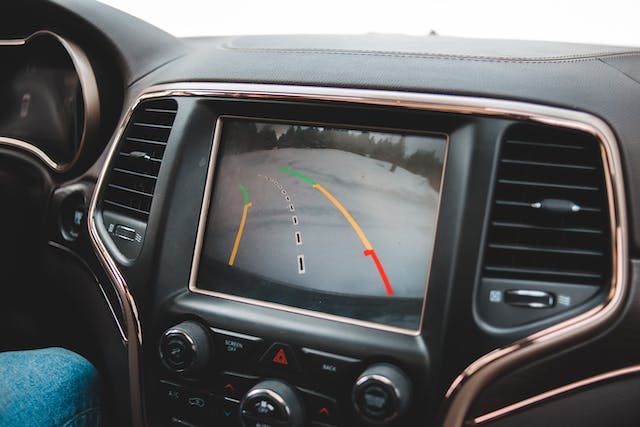Vehicle Fleet Management, in general, is the management of:
- Commercial motor vehicles such as cars, vans, trucks, forklifts, trailers and specialist vehicles (such as construction machinery)
- Private vehicles used for work purposes
- Aviation machinery such as aircraft (planes and helicopters)
- Ships
- Rail cars
- Non-powered assets such as generators, tanks, gear boxes, dumpsters, shipping containers, trailers, excavators, and other equipment that can’t run on its own power.
Vehicle fleet management can include a range of functions, such as vehicle leasing and financing, vehicle maintenance, licensing and compliance, supply chain management, accident management and subrogation, vehicle tracking and diagnostics, driver management, speed management, fuel management, health and safety management, and vehicle remarketing.
Fleet Management is a function which allows companies which rely on transportation in business to remove or minimize the risks associated with vehicle investment, improving efficiency, productivity and reducing their overall transportation and staff costs, providing 100% compliance with government legislation and many more.
These functions can be dealt with by either an in-house fleet-management department or an outsourced fleet-management provider.
Vehicle Tracking System
A key component in vehicle fleet management systems is the vehicle tracking component. This component is usually GPS-based, but sometimes it can be based on GLONASS (Global Navigation Satellite System) or a cellular triangulation platform. Once vehicle location, direction and speed are determined from the GPS components, additional tracking capabilities transmit this information to a fleet management software application.
Methods for data transmission include both terrestrial and satellite. Satellite tracking communications, while more expensive, is critical if vehicle tracking is to work in remote regions. Users can see precise, real-time locations of their fleet on a map. This is often used to quickly respond to events in the field.
Mechanical Diagnostics
An advanced Fleet Management System (FMS) can connect to the vehicle’s onboard computer, and gather data for the user. Data such as mileage and fuel consumption are gathered into a global statistics scheme.
Driver behavior
Highly developed fleet management and vehicle telematics systems collect a full range of data in real-time and for transport and fleet managers. By combining received data from the vehicle tracking system and the on-board computer, it is possible to form a profile for any given driver.
Average speed, frequency of detours, breaks, severity of manoeuvres, choice of gears, and other factors are all taken into account. This data can be used to highlight drivers with dangerous habits and to suggest remedial training to correct the issues, and ensure that drivers are meeting KPIs.
Fleet Management Software
Fleet management software enables people to accomplish a series of specific tasks in the management of any or all aspects relating to a company’s fleet of vehicles. These specific tasks encompass all operations from vehicle acquisition to disposal.
Software, depending on its capabilities, allows functions such as recording driver and vehicle details, the tracking of procurement costs, scheduling of maintenance and servicing tasks, import of fuel transactions, route optimization, and measuring of fleet performance through reports and charts.
Importance of Fleet Management Integration
The range of functions involved in fleet management are highly interrelated and typically integrated. While some services and products can be engaged separately, an overall system that integrates the data from various functions is required for optimal performance.
Vehicle tracking systems provide a number of data points regarding engine diagnostics, driving behaviors, and geo-location. But there are a multitude of other data points outside of vehicle tracking systems that significantly impact fleet performance.
Things such as; fuel transaction data, maintenance repair data, individual vehicle documents such as, vehicle registrations, titles, and travel permits, supply chain data including vehicle and equipment specifications, warranties, build and delivery data, and vehicle identifying data, and driver-centric data such as acceptance of fleet policies, completion of required safety training, as well as demographic data on job types, all contribute to the fleet data management.
The more specialized functions a fleet performs, the more systems and data points are involved in integration.
Dash Cams for Truckers
Dash cams are used by trucking businesses to improve driver behavior, increase fleet safety, and make driver coaching sessions more efficient and productive.
A truck dash cam is one of the must have gadgets for your truck. It also allows you to investigate the issues properly and honestly. A pure and high quality truck dashboard camera system can save you from many problems during your journey through remote areas.
The best night-vision dash cams can be very useful if you travel a lot during the nights even on cars that come with an interior facing dash cam.
Benefits
Here is our list of the top 5 benefits of using a truck dash cam.
- You have evidence of a car accident.
- You can report undisciplined drivers through Driver Risk Management Systems (DRMS).
- You can prevent insurance fraud and have evidence to claim insurance if needed.
- You can record incidents when you are away from the truck.
- You can use them for training and coaching.
Finding a good dash cam for your truck can be tricky, especially the best front and rear dash cam. It’s important to evaluate your options in order to find the best Trucker dash cam in the market.


